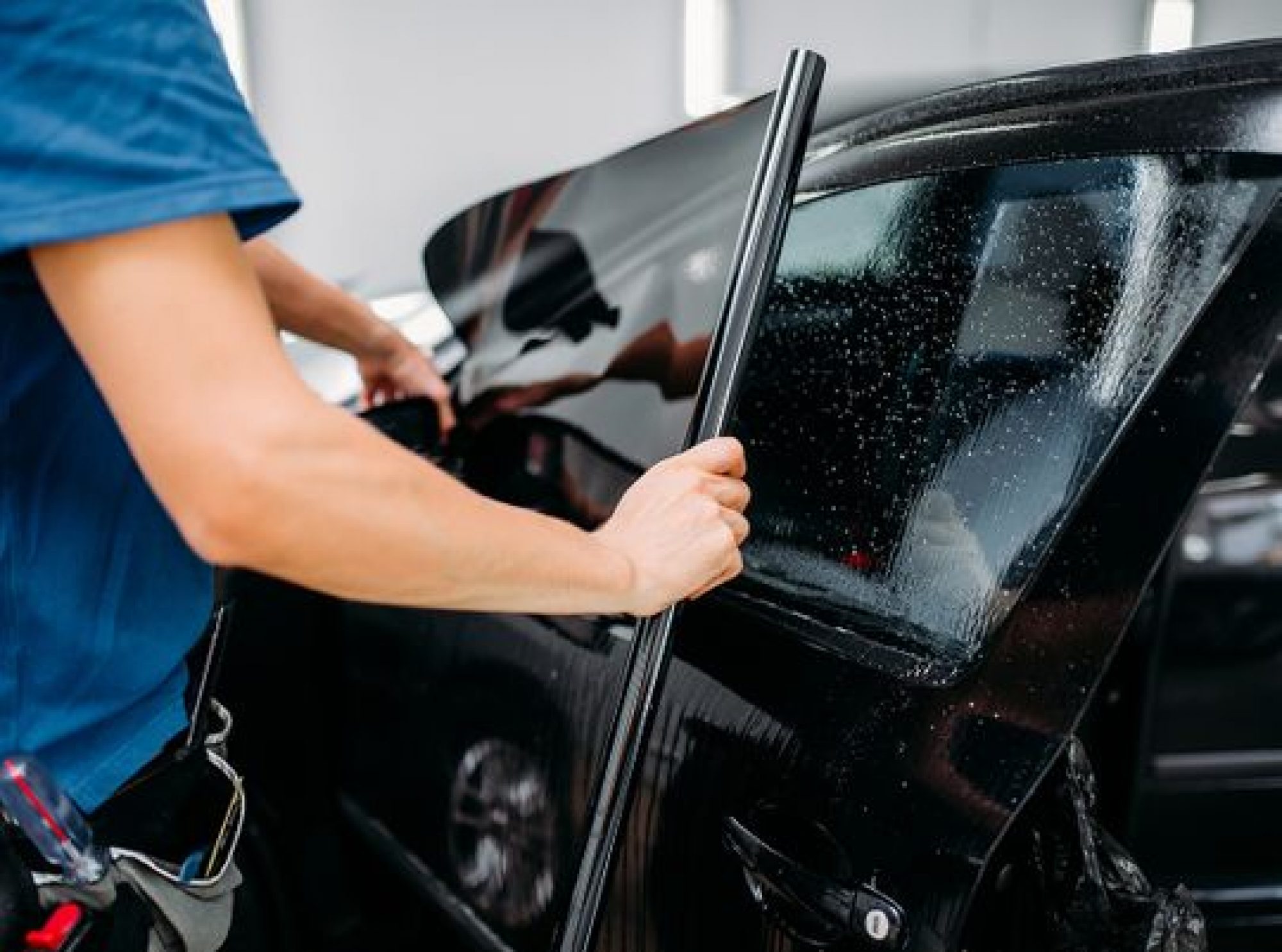How Window Tinting Enhances Your Car's Appearance and Protects Its Interior
How Window Tinting Enhances Your Car's Appearance and Protects Its Interior
Blog Article
Home Window Tinting Laws: What You Required to Know Before Tinting Your Automobile
Understanding window tinting legislations is vital for any lorry owner thinking about tinting their auto. Laws differ dramatically from one state to another, establishing certain limits for Visible Light Transmission (VLT) percents, particularly for front-side windows and windscreens. Failing to adhere to these laws can cause fines, the necessity to remove the color, and complications with insurance policy. As you consider improving your vehicle's look and functionality, it is crucial to comprehend not only the lawful ramifications yet also the sensible considerations that feature choosing the ideal tint. What factors should you prioritize in your decision-making procedure?
Value of Recognizing Color Laws
Recognizing home window tinting regulations is important for automobile proprietors to ensure conformity with state laws. These laws dictate the permissible levels of tint darkness and reflectivity, which can considerably vary from one jurisdiction to an additional. Stopping working to stick to these guidelines can cause penalties, compulsory removal of the tint, and potential complications during automobile inspections.
Furthermore, understanding these laws assists lorry owners make informed decisions regarding their tinting options. Various sorts of window films offer various advantages, such as UV defense, warmth denial, and glare reduction. However, without knowledge of the lawful restrictions, vehicle proprietors take the chance of selecting items that might eventually result in legal concerns.
In addition, recognition of tinting legislations promotes a more secure driving atmosphere. window tinting. Excessively dark colors can impair presence, increasing the danger of accidents, specifically at evening or in adverse climate conditions. Police likewise utilize these laws to guarantee roadway security, making conformity not just an individual responsibility yet a lawful responsibility
State-Specific Tint Laws
Each state in the united state has established its very own specific guidelines concerning window tinting, showing a varied array of needs and requirements. These laws can vary dramatically, influencing exactly how automobile owners approach installation and compliance. Some states enable darker colors on back windows while imposing rigorous limits on front-side home windows.
In addition, regulations commonly specify allowable tint products and shades. Particular states ban reflective colors completely, while others might allow them to a limited degree. Some jurisdictions mandate that vehicles with tinted windows show a sticker label indicating conformity with state regulations, providing a clear identification for regulation enforcement.
Enforcement of these laws also varies; some states are more proactive, conducting random checks, while others count on grievances or visible infractions to start enforcement. Lorry proprietors should understand that failing to abide by state-specific color guidelines can cause fines, required elimination of unlawful tints, or both.

Lawful Tint Percentages
Identifying the legal tint portions is important for automobile owners seeking to abide website link by state policies. Each state has certain legislations governing how much light has to go through the windows of a vehicle, which is shared as a portion known as Noticeable Light Transmission (VLT) This percentage varies considerably across states and can rely on the sort of window-- front side, rear side, and windscreen.
For example, some states allow as little as 20% VLT on front side windows, while others might permit approximately 50%. Windscreen tinting is commonly extra limited, with numerous territories enabling just a slim band of tint on top of the windshield. On the other hand, back home windows generally have extra tolerant regulations, with some states permitting darker tints.
It is crucial for automobile owners to acquaint themselves with their local laws to stay clear of potential lawful issues. This includes understanding how VLT is determined, as it can differ based upon the kind of window film utilized. Remaining notified concerning these regulations ensures compliance and advertises safe driving conditions for both the car owner and others on the road.
Consequences of Non-Compliance
Falling short to stick to home window tinting laws can lead to web link significant effects for car owners. Policemans educated to determine unlawful color levels might release penalties, which can differ by jurisdiction however usually vary from modest to significant quantities.

Insurance provider might additionally enforce fines for non-compliance, as prohibited modifications can be considered as a violation of policy terms. This might impact coverage rates or bring about difficulties in cases if a case takes place.
Eventually, the repercussions of non-compliance expand past instant financial penalties; they can influence a driver's insurance coverage rates, lawful standing, and general car value, stressing the importance of adhering to local home window tinting guidelines.
Tips for Picking Tinting Options
Understanding the ramifications of non-compliance highlights the value of making notified selections when choosing window tinting alternatives. Familiarize yourself with your state's details laws pertaining to tint darkness and reflectivity. Each state has one-of-a-kind laws that determine the acceptable restrictions, so ensure you remain within these guidelines to avoid penalties.
Second of all, consider the kind of color material. Alternatives consist of colored, metalized, and ceramic tints, each offering differing degrees of warmth rejection, UV protection, and longevity. Ceramic colors give premium warm resistance without interfering you could try here with digital devices, making them a prominent selection.
Additionally, evaluate your main objective for tinting. If you seek improved personal privacy, choose darker tints; nevertheless, bear in mind that this might affect presence in the evening. Conversely, if glare reduction and UV security are your primary issues, lighter colors might suffice.
Lastly, seek advice from an expert installer that is educated regarding regional guidelines and can suggest high-grade products matched to your needs (window tinting). Taking these variables right into account will certainly guarantee you make a well-informed decision, ultimately improving both your car's looks and capability
Verdict
In verdict, experience with window tinting legislations is crucial prior to applying color to an automobile. By understanding lawful needs and picking proper tint materials, vehicle proprietors can achieve visual improvement while continuing to be compliant with pertinent legislations.
Comprehending window tinting laws is necessary for any car proprietor considering tinting their automobile.Understanding home window tinting regulations is important for car proprietors to make certain compliance with state guidelines. Some states enable darker colors on back home windows while enforcing strict limits on front-side windows.
In contrast, rear home windows generally have much more tolerant laws, with some states allowing darker colors. (window tinting)
In conclusion, experience with home window tinting regulations is essential prior to applying tint to a car.
Report this page